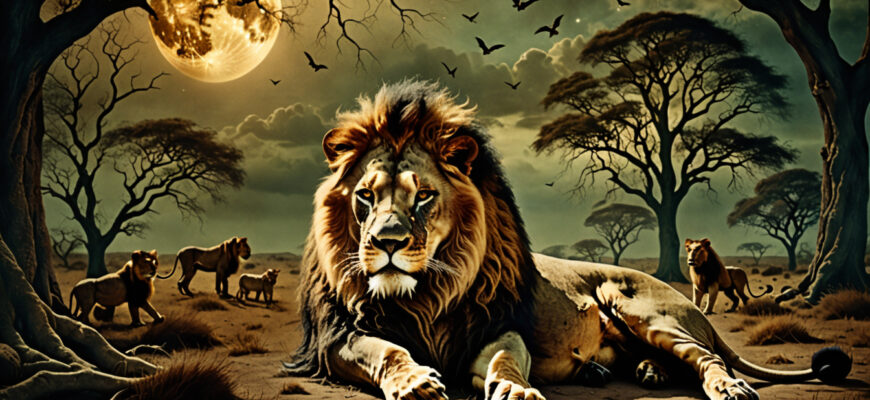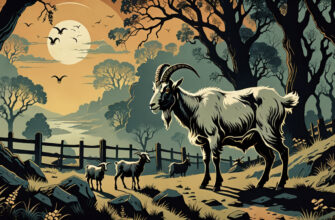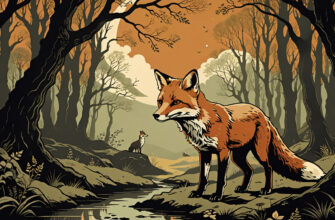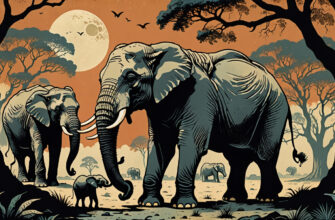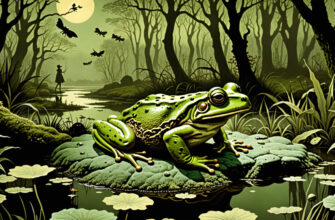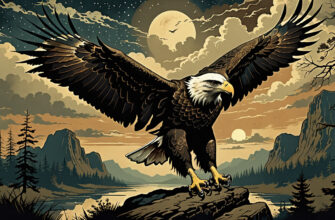Ever wake up from a dream, heart pounding, because a lion—king of all things wild and fearless—was lying dead at your feet? It sticks with you. It’s not just an image; it’s a gut-punch. In dream language, lions aren’t just animals. They’re power. Boldness. Survival itself. So when that power is dead in your dream, your subconscious is practically yelling. This isn’t a one-size-fits-all message—but it definitely means something’s shifted inside you. Maybe your courage feels exhausted. Maybe a life role you’ve clung to—protector, provider, the one who holds it all together—has cracked. Whatever it is, that dream lion didn’t die for nothing. It’s a mirror you didn’t ask for, but probably needed. Let’s crack it open.
- The Lion As A Dream Symbol: Courage, Authority, Instinct, And Survival
- Why The Lion’s Death Matters: What Shifts When Your Source Of Power Dies
- Common Emotional Responses: Fear, Relief, Confusion, Numbness
- Relevance Of Timing: Recurring Themes During Loss, Breakups, Burnout, Or Betrayal
- Dreaming Of Powerlessness: Being Witnessed In Your Lowest, Rawest State
- Crushed Ego Or Just A New “You” Trying To Form?
- The Lion As Former Protector: What Happens When Inner Resilience Breaks
- The Dead Lion And Shadow Work: Facing Rejection, Rage, Buried Grief
- The Death Card (If It Had Fur): Cycles Of Breakdown And Spiritual Rebirth
- Questioning Identity, Mission, Or Faith: When You Doubt Your Own Fire
- The Silence After The Roar: Learning To Listen Without Warning Signs
- The Link Between Trauma and Dream Symbolism
- Trauma dreams vs. symbolic processing: how does your body speak in dreams?
- Reclaiming personal power after spiritual or sexual violations
- When the lion was doing harm: interpreting relief or release as healing, not loss
- Authority, Anger, and Control
- Who had the power? When the dead lion represents a father, boss, ex, or system
- Power projections: was the lion even yours to begin with?
- Bittersweet Growth and the Birth of Truer Strength
- Letting go of performative bravery: soft power and quiet survival
- What comes after endings: the new archetypes born out of collapse
The Lion As A Dream Symbol: Courage, Authority, Instinct, And Survival
Lions often show up in dreams when your sense of control or inner bravery is on the line. Think of them as symbols of untamed willpower, sexual dominance, leadership, and that primal drive that says, “I got this.” Seeing a lion in your dream usually means you’re tapped into that raw survival force—or yearning for it. It can also reflect how you carry power in your daily life: how instinctive you are, how much space you take up, or where you feel threatened. The lion isn’t just about strength—it’s about owning your space without apology.
Why The Lion’s Death Matters: What Shifts When Your Source Of Power Dies
A dead lion? That hits different. That’s your dream asking: what part of you no longer has the guts to roar? Power doesn’t always disappear with a bang. Sometimes it dies quietly, when burnout hits, when your confidence gets chipped away, or when you outgrow the persona you thought you had to be. Maybe the lion stood guard over a version of you that doesn’t fit anymore. The death could also point to a deep need to reclaim inner strength from someone—or something—you gave it away to. Either way, when the lion goes down, it’s time to question who’s steering your inner world now.
Common Emotional Responses: Fear, Relief, Confusion, Numbness
People don’t just dream of a dead lion and shrug it off. The emotional reactions are heavy:
- Fear: Fear that your power—or something or someone you felt safe with—is gone
- Relief: Strangely comforting, especially if the lion had started to feel more like a threat than a guide
- Confusion: Because shouldn’t the lion be the savior? Why does its death feel both sad and liberating?
- Numbness: Like some part of yourself just clocked out emotionally
These dreams tug at control, trauma, and identity. So yeah—emotions get loud or weird or shaky. It’s normal. Doesn’t mean you’re broken. It means something emotional shifted while you were asleep, and your psyche’s catching up.
Relevance Of Timing: Recurring Themes During Loss, Breakups, Burnout, Or Betrayal
These dreams tend to show up during messy life transitions—wounds you don’t have words for yet. Job loss. Divorce. Betrayal by someone you relied on. Or just that quiet ache of knowing something’s dead inside but pretending it’s not. That’s when the lion dies in your sleep. Not as punishment—but as a signal. That the dominant, all-mighty part of you is tired. Or evolving.
Dreaming Of Powerlessness: Being Witnessed In Your Lowest, Rawest State
Watching the lion—that symbol of dominance—lay lifeless can crack you open. It can echo what it feels like to completely unravel in front of others. When you’ve lost control, failed at something big, or got knocked down so hard that even pretending to be “strong” feels fake. This is the dream where your subconscious says, “Yeah, you were strong. But right now? You’re just human. And that’s allowed.”
Crushed Ego Or Just A New “You” Trying To Form?
Dead lions often show up when your ego’s being ripped apart—dying dreams, failed love, public disappointment. But underneath that cracked shell might be a more honest version of you, trying to claw its way out. Maybe you don’t need to be “the strong one” anymore. Maybe you’re shedding performance bravery. The question is: does the dead lion represent your collapse? Or your rebirth from pretending?
The Lion As Former Protector: What Happens When Inner Resilience Breaks
That dream lion might have been protecting you from chaos, fear, or even your own grief. When it dies, it’s normal to feel exposed. Like your shield is gone. This could signal that your defenses—emotional, mental, sexual—are weakening. Not necessarily in a bad way. Maybe it’s time to face the things you’ve armored yourself against. Maybe the wound needs air to heal.
The Dead Lion And Shadow Work: Facing Rejection, Rage, Buried Grief
If the lion carried something dark—rage, dominance, repressed sexuality—its death can mean the shadow parts of you are demanding attention. This is where rejection lives. Where uncried tears live. Where old rage got boxed away for survival. Dreaming of the dead lion could be step one of finally confronting what you were too afraid or ashamed to name before.
The Death Card (If It Had Fur): Cycles Of Breakdown And Spiritual Rebirth
This isn’t just loss—it’s transformation with teeth. A dead lion can be the dream-world’s death card. Not literal death. Just the funeral of who you thought you had to be. The lion had its season. You’re not failing for laying it down. You’re evolving. This is a spiritual gut check: is it time for you to rise differently, softer maybe, but smarter, too?
Questioning Identity, Mission, Or Faith: When You Doubt Your Own Fire
You ever ask, “Who even am I without my fight?” That’s the energy dead-lion dreams bring. They rattle the parts of you tied to fire—faith, sexuality, divine purpose. When the lion falls, it forces you to examine the foundations of your confidence, your passions, your faith in anything bigger than you. Maybe it’s all being restructured. And maybe that’s exactly what needs to happen.
The Silence After The Roar: Learning To Listen Without Warning Signs
Sometimes the scariest part of the dream isn’t the dead lion—it’s the quiet that follows. No more roaring. No more protection. Just silence. That stillness can either feel like abandonment or peace. Think of it as a pause. What do you hear now that the noise is gone? This is where the new beginning whispers. This is where you find out what still lives in you, waiting to rise.
The Link Between Trauma and Dream Symbolism
Ever had a dream where you saw something die—like a lion, of all things—and woke up rattled to your core? That wasn’t just random dream static. Dreams are where the body remembers when the mind tries to forget. A dead lion in a dream can be the spirit’s weird, poetic way of saying, “Hey, something sacred didn’t survive in here.”
Dead lions aren’t just about death—they often point to collapsed power, broken safety, or silent pain too long carried. For folks moving through trauma, whether it’s rooted in childhood control, relationship abuse, or even inherited pain, these dreams act like midnight wake-up calls. You’re not imagining the grief or confusion; your body is flagging it in symbols.
Trauma dreams vs. symbolic processing: how does your body speak in dreams?
There’s a difference between reliving trauma and processing it symbolically. A lion dying might not mean you’re unsafe now—it could mean your body is finally releasing old fear. Think less like PTSD flashback, more like a psychic body purge. This is your system visually spell-checking grief and stress.
Reclaiming personal power after spiritual or sexual violations
For those recovering from spiritual betrayal or sexual trauma, dreaming of a dead lion can hit different. The lion often holds masculine and sexual symbolism, so its death may represent the loss—and possible reclamation—of agency. It’s messy. But it might also reflect a shift: from being dominated, watched, controlled… to finally being free. Like the lion had to die so you could stop surviving under its shadow and start living on your own terms.
When the lion was doing harm: interpreting relief or release as healing, not loss
If the dead lion made you breathe easier in the dream, take note. Sometimes it’s not a loss—it’s permission. That lion may have been standing in your way, symbolizing past abusers, a manipulative lover, or toxic control. Feeling relief could mean you’re no longer held hostage by fear. It’s your subconscious saying: the threat is gone.
Authority, Anger, and Control
Not every lion in dreams symbolizes you. Sometimes, it’s about the power that was held over you—by a voice, a person, a system. When that lion shows up dead, you’re face-to-face with the collapse of that structure. But question is: did you want it gone? Or did it feel like your world fell apart?
Who had the power? When the dead lion represents a father, boss, ex, or system
You might be picking up pieces after a power figure exited your life—or after you kicked them out. Dream lions tied to fathers, bosses, or dominant exes? That’s textbook authority projection. If they die in your dream, it could reflect the end of their influence, or your rebellion paying off. It’s not always actual freedom though—it can feel destabilizing, like stepping into shoes you never wanted to wear.
Power projections: was the lion even yours to begin with?
People dream of dead lions and think, “I’m losing something.” But what if it never belonged to you? Lions in dreams can carry someone else’s strength, ego, or demands. If you’ve been performing toughness or leadership you didn’t ask for—this dream might be your subconscious chucking the costume. Stop clinging to borrowed strength, especially if it never fit.
Bittersweet Growth and the Birth of Truer Strength
Killing the lion, losing the lion, or standing numb beside it—no matter the dream’s tone—it usually clears space for something else to grow. That in-between zone? It stings. But it’s honest. And sometimes what’s gone wasn’t even empowering you—it was just loud.
Letting go of performative bravery: soft power and quiet survival
Culture loves the roar—strength that announces itself. But not every survivor wants to shout. For people who’ve played brave for too long, a dead lion might be your cue to trade in the armor. There’s something radical about surviving quietly. It’s not weakness. It’s rest. It’s choosing peace instead of proof.
What comes after endings: the new archetypes born out of collapse
Once the lion dies, what archetype steps in? The healer? The rebel? The mother? Maybe the seer or servant? After old strength collapses, raw forms of power show up—unpolished but true. Dreams like these don’t just grieve what’s lost; they hint at what’s waiting. Trust what’s coming through, even if it’s quiet, soft, or unfamiliar. The new you doesn’t need a mane to be magnificent.
